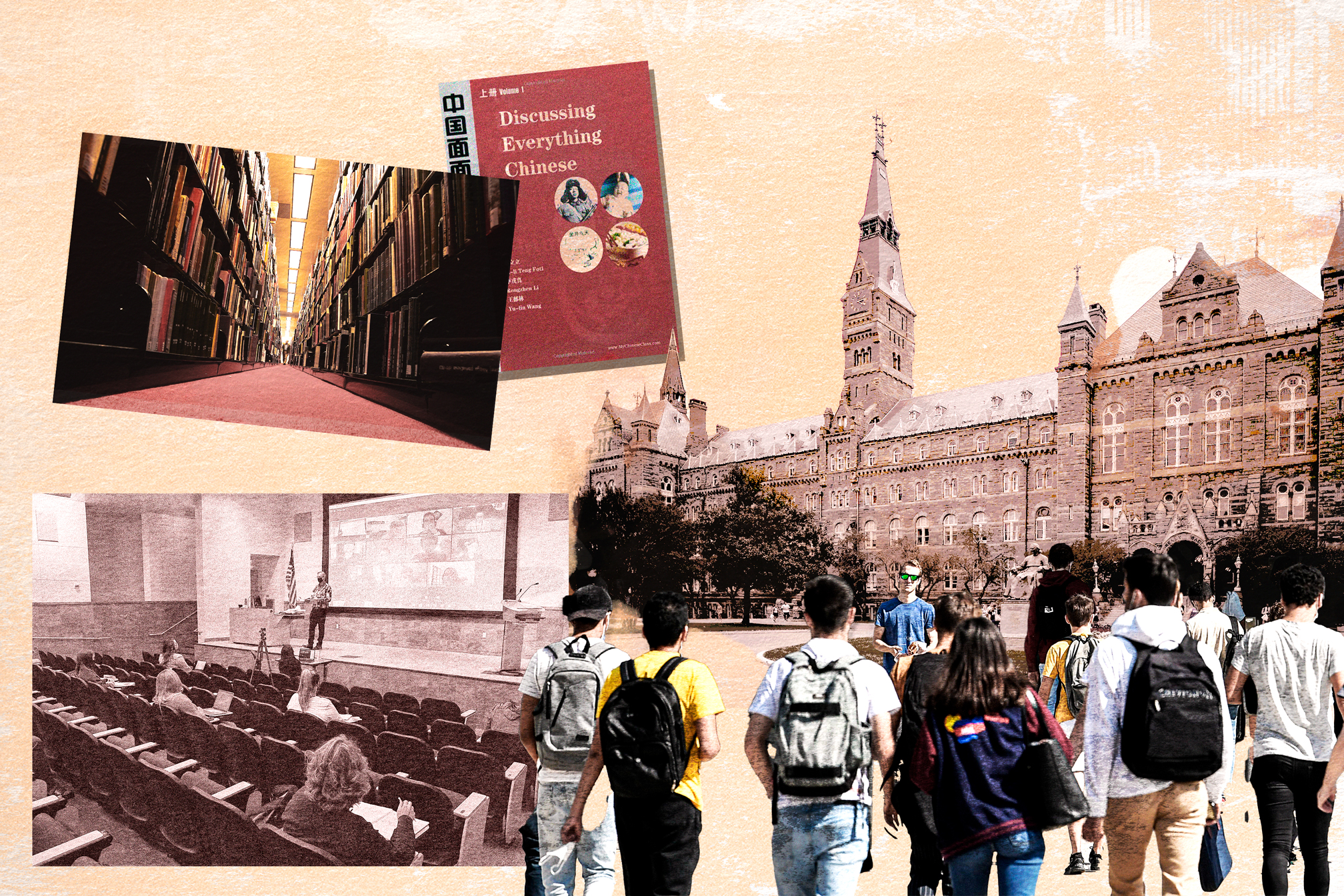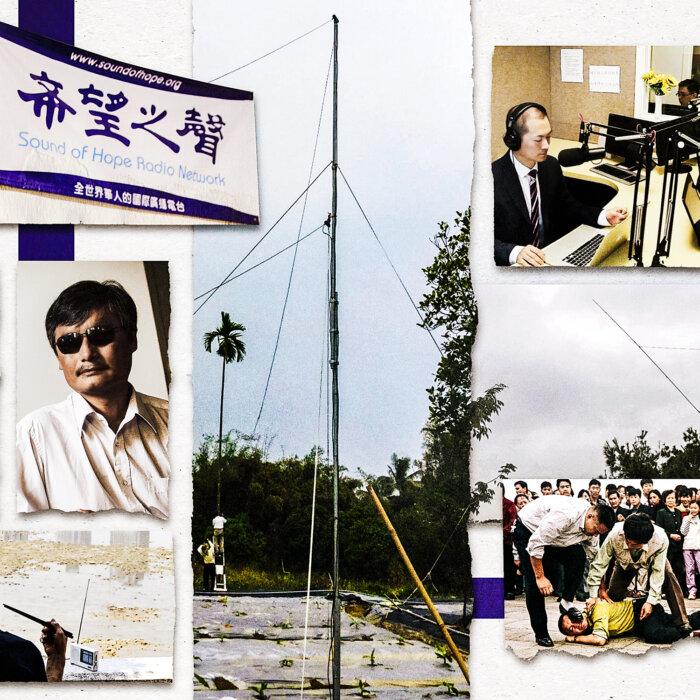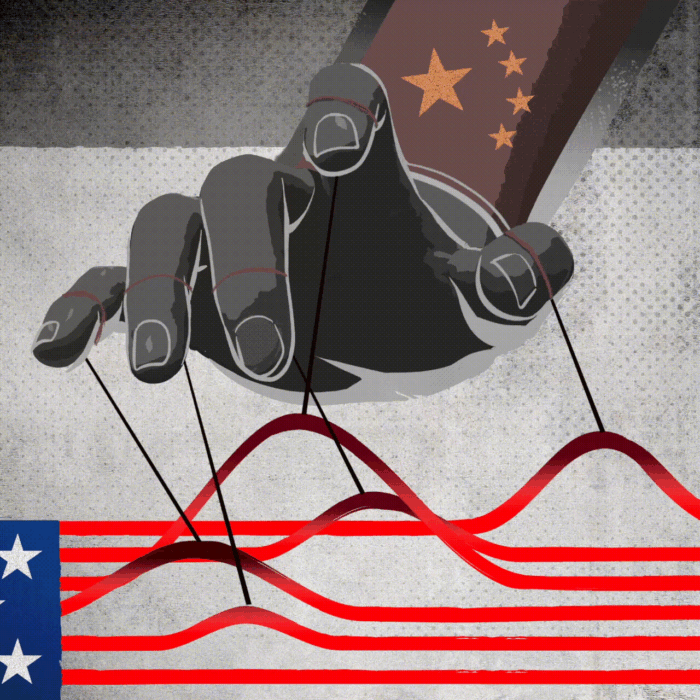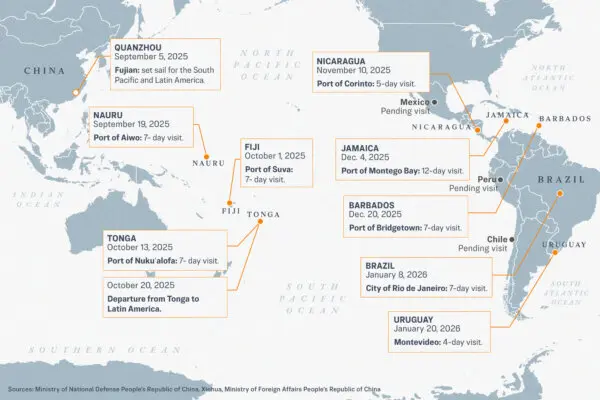WASHINGTON—The Chinese regime’s repeated harassment of a Georgetown University law student’s family members back home sent a clear message: He must not speak out against Beijing.
“They asked my father extensively about my political convictions and eventually let him go on the condition that he [make] me ‘love the country and love the Party,’ with a threat of ‘or else.’”
From what Chinese authorities had told his sister and father, Mr. Zhang knew he was targeted because the CCP suspected him of being a member of a pro-democracy Chinese student group in Washington.
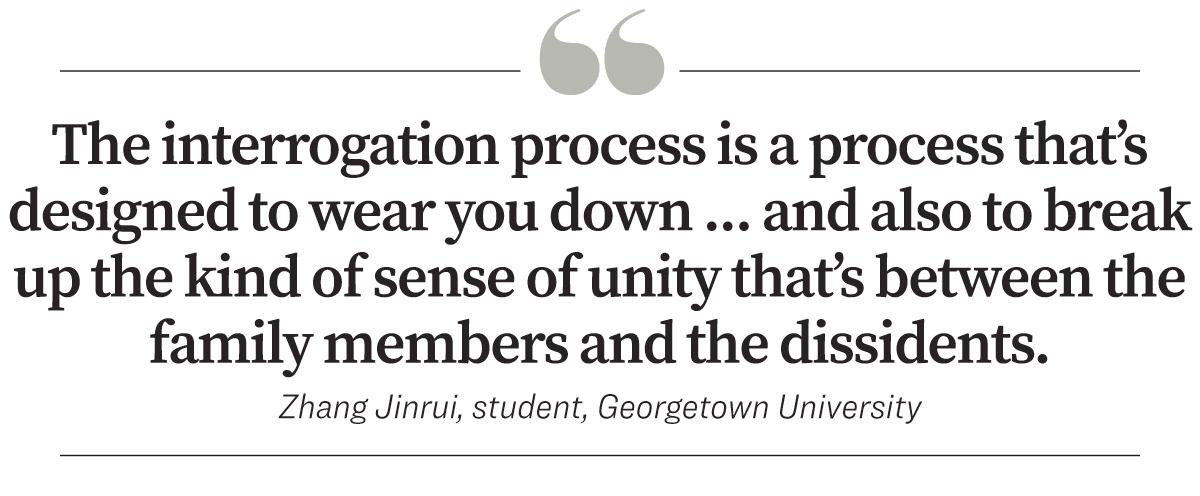
During these interrogations, Mr. Zhang said his father was “under tremendous pressure.”
“The interrogation process is ... designed to wear you down, to wear your mental stamina down, and also to break up the kind of sense of unity that’s between the family members and the dissidents,” he told lawmakers at the hearing.
Mr. Zhang, when asked if the CCP had coerced his father into telling him about his psychological suffering so as to dissuade him from speaking out against the Party, told The Epoch Times: “Right now, I cannot tell.
“I cannot tell which part is forced [and which is] voluntary. I don’t know because we’re all just talking through the online calling platforms of China, and there’s censorship for that, too. So I’ll never know until maybe one day I meet him somehow.”
Through online groups in Washington, Mr. Zhang learned that at least a dozen Chinese students in the Washington area said their families were harassed in 2023. Most of them are studying at George Washington University (GWU), where pro-democracy Chinese students have clashed with members of the pro-CCP Chinese Students and Scholars Association (CSSA).
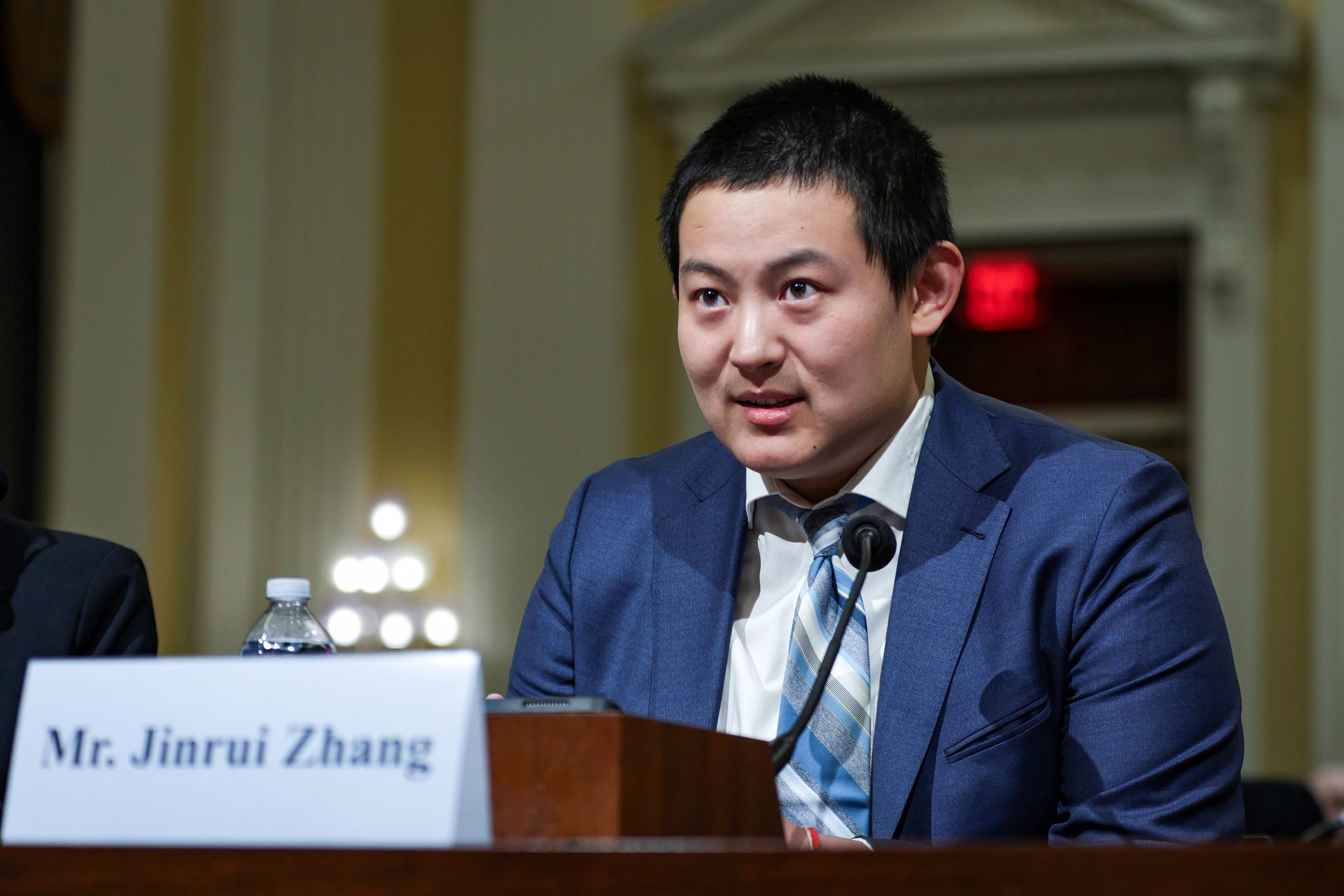
The CCP suspected Mr. Zhang of being a member of the union—even though he wasn’t.
He’s still baffled about how he was identified as a member. He said he didn’t attend any events organized by the group but may have incidentally joined an event where some ICSU members were also present.
Last June, two months after the ICSU announced its founding on the social media platform X, Mr. Zhang’s sister sent him a message on WeChat. She said a police officer had called her and asked about him.
“Is he in Washington? Did he participate in or create a Torch on the Potomac organization? We’ve learned that he is a core member,” the officer told his sister.
Several days later, national security officers visited his father and asked him to make Mr. Zhang “love the country and the Party.”
By comparing notes with others whose families were also harassed, Mr. Zhang summarized a “streamlined repression process” that he shared with lawmakers.
“From oral accounts, we can see how the CCP has a sophisticated system to repress people who are outside of China,” he said at the hearing.
Mr. Zhang identified two types of repression carried out by Chinese authorities: formal and informal.
Regarding formal repression, he said that “there are social media teams, teams to spot potential troublemakers, liaison teams that send orders to local police departments to get the addresses of the people’s families, and there are teams that get sent out to do the interrogations and deliver the threats.”
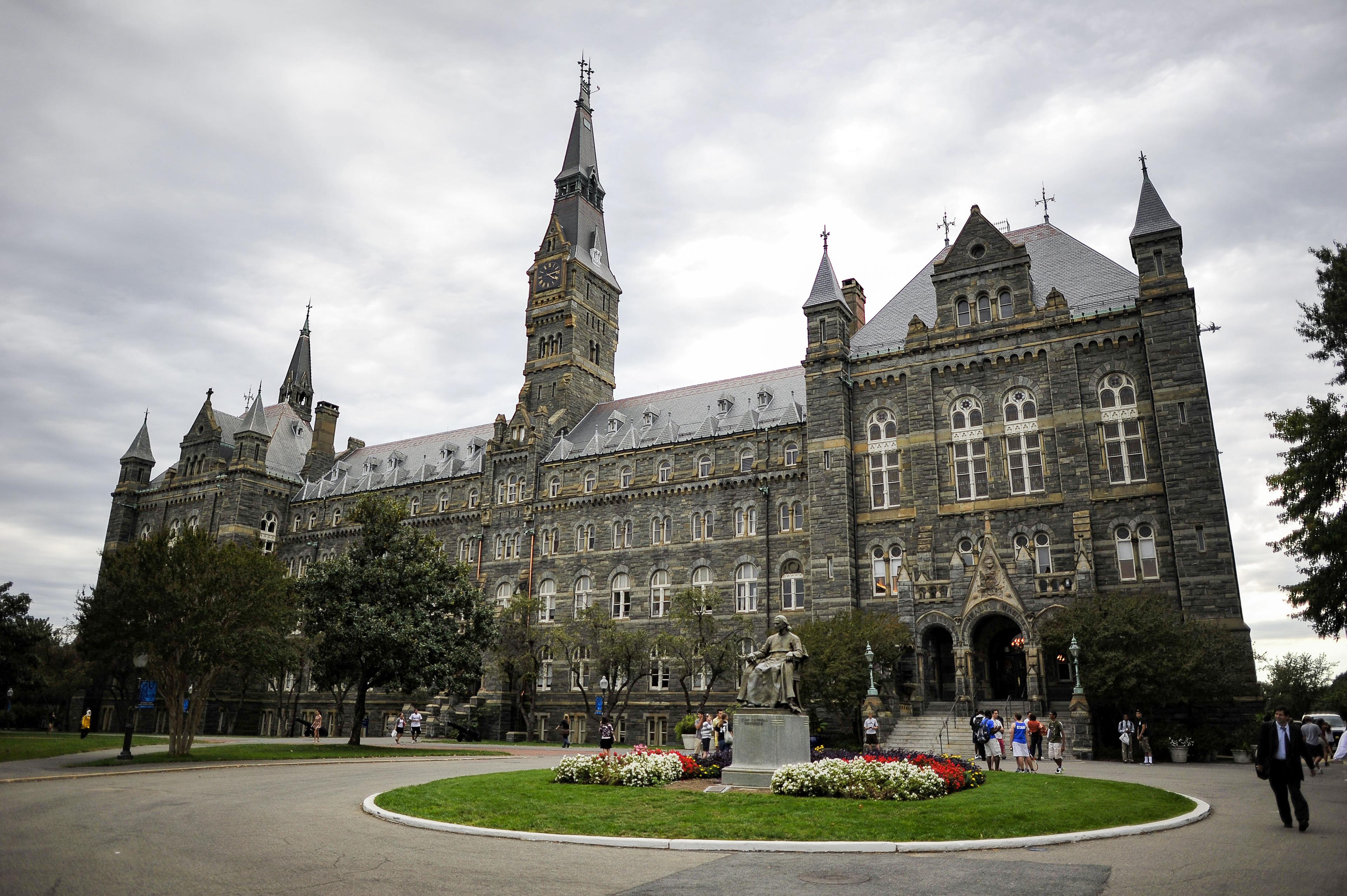
Informal repression is “carried out organically by CCP supporters who are emboldened by the CCP,” he said.
He experienced informal repression in late 2022 when he distributed flyers against Beijing’s zero-COVID policy on Georgetown’s main campus.
Chinese students in the United States, including Mr. Zhang, undertook their own efforts to raise awareness and show solidarity.
Within 40 minutes of his flier distribution, a Chinese student scolded him for being a “traitor” and “scum of the Earth” and accused him of taking money from the U.S. government to pass out the materials.
He said the Chinese student was on the phone but turned the phone camera on him and told the party on the other end of the call to report him to Chinese police, saying, “This is an anti-government person.”
The FBI calls Mr. Zhang’s experience “transnational repression.”
Rep. Mike Gallagher (R-Wis.), chair of the House Select Committee on the CCP, explained the regime’s modus operandi.
“The CCP actually seeks to surveil, influence, punish, and coerce people all over the world. They want to silence their critics, control politics, and police thought far beyond China’s borders,” the congressman said at the December hearing.
“And one of their coveted targets is U.S. universities.”
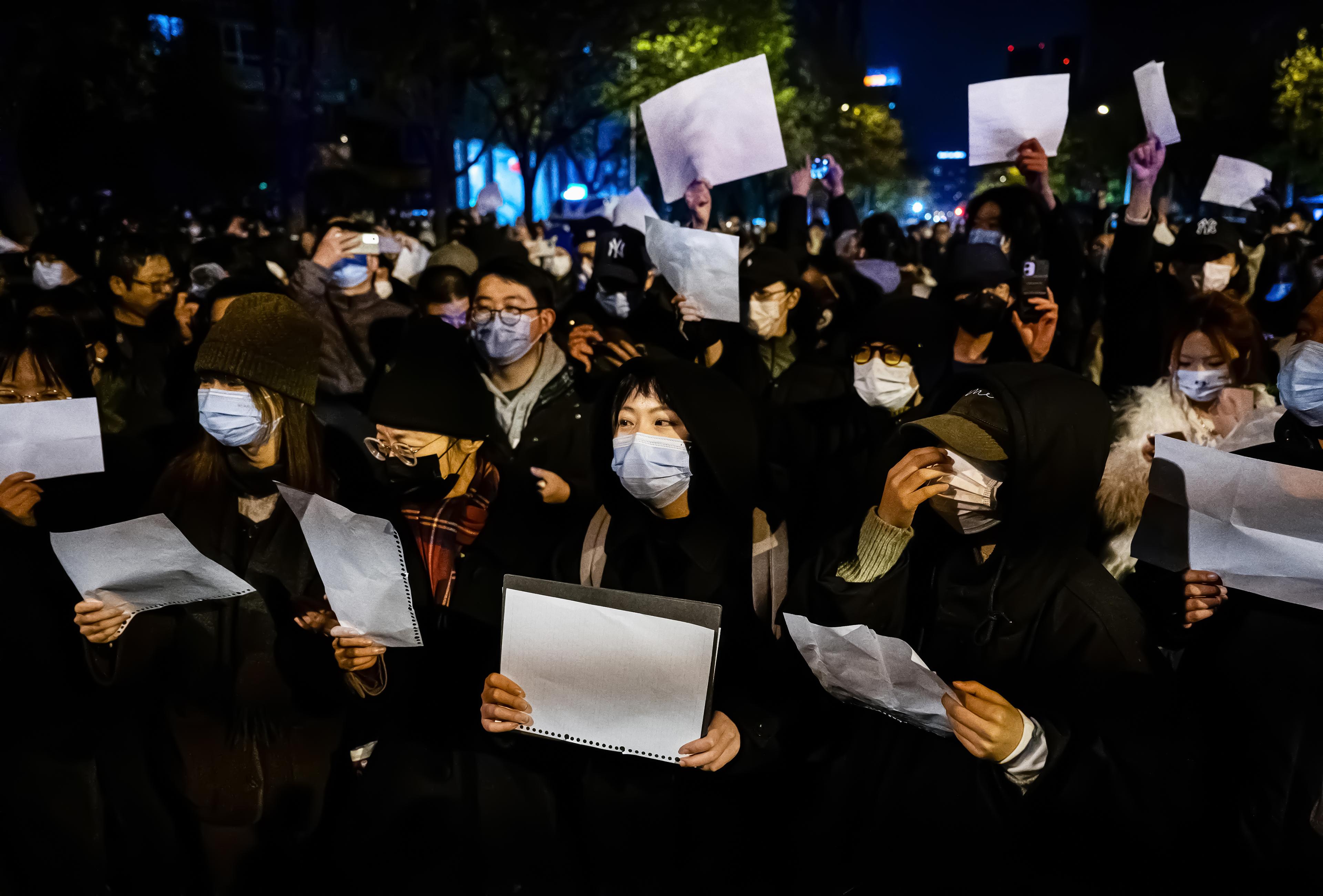
Chinese Student Convicted
When lawmakers asked Mr. Zhang about the most severe case he had heard about, he mentioned a pro-democracy student in Boston who was stalked and threatened for posting a piece of paper on a window near campus that read “Stand with Chinese People,” “We Want Freedom,” and “We Want Democracy.”The student was subsequently threatened in a 300-member chat room by Wu Xiaolei, a student at the Berklee College of Music, according to court documents.
“I already called the tipoff line in the country; the public security agency will go greet your family,” Mr. Wu wrote in the chat room.
“Post more, I will chop your [expletive] hands off.”
Prosecutors said Mr. Wu posted the student’s email and home addresses online. At a hearing on Jan. 23, the student said she thought Mr. Wu made her information public to encourage others to beat her up.
“I remain terrified until this day,” she said.
On Jan. 25, Mr. Wu was found guilty of cyberstalking and interstate transmissions of threatening communication, crimes that carry up to five years in prison and a fine of $250,000. His sentencing hearing is scheduled for April.
Prosecutors, viewing Mr. Wu as a flight risk, asked the judge to detain him until sentencing, citing information from the FBI that Chinese authorities had expressed interest in the case multiple times.
When the judge rejected that request, prosecutors requested that Mr. Wu be put under ankle bracelet monitoring and that his travel be restricted to the state. The judge approved the travel restriction.
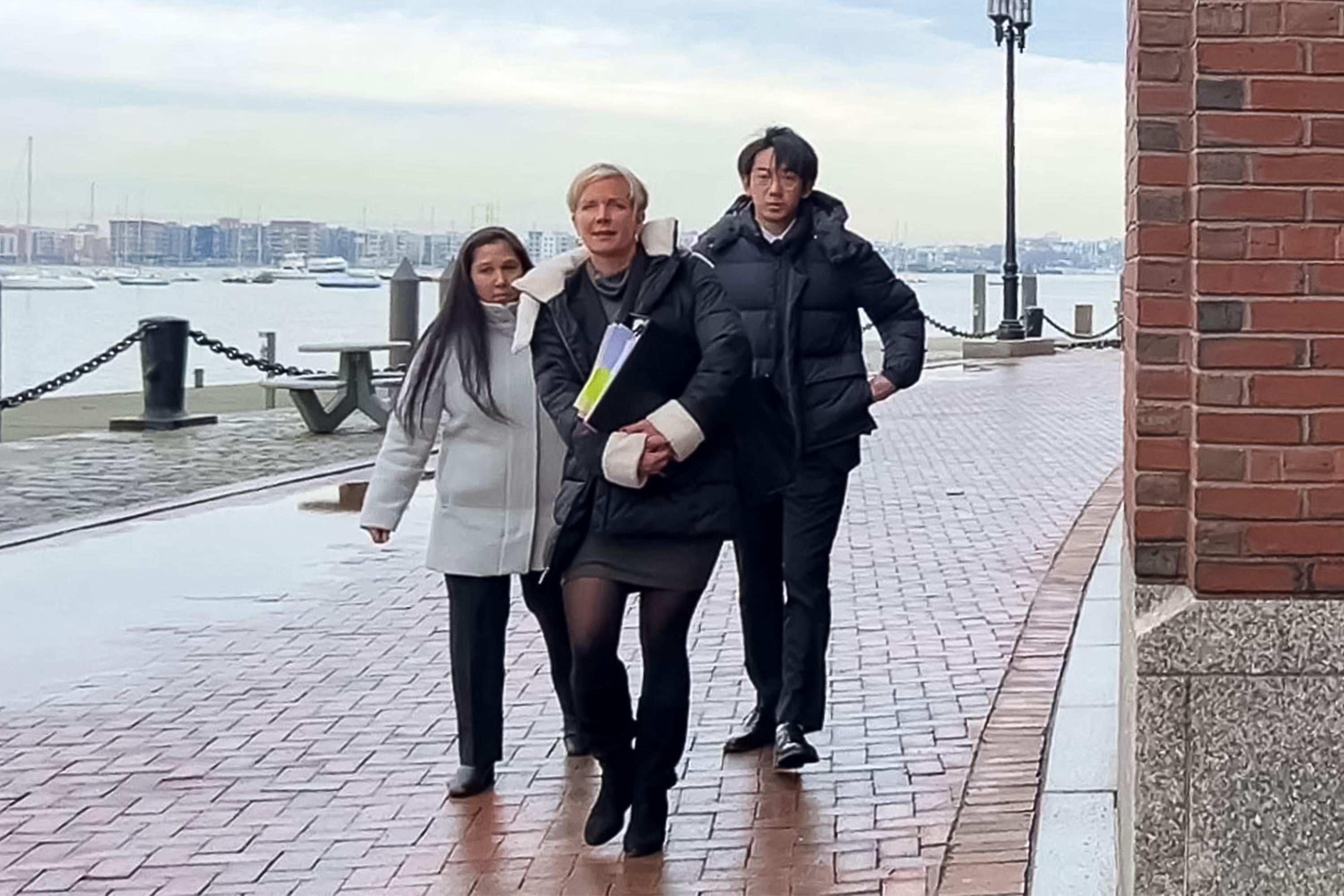
Mr. Wu showed no reaction when the jury’s verdict was announced. His lawyer, Jessica Hedges, patted him on the back as a gesture of comfort. He didn’t seem deterred by the ruling; outside the courthouse, he gave reporters the middle finger as he left.
Berklee confirmed to The Epoch Times that Mr. Wu is no longer enrolled at the school.
“His actions are contrary to Berklee’s fundamental principles and values. Berklee supports the right of all to express their opinions on matters of public concern and does not condone threatening behavior by anyone,” a college spokesperson wrote in an email.
Chinese Student Groups as CCP Proxies
A key incident that sparked the formation of the ICSU at GWU was an awareness campaign carried out ahead of the 2022 Beijing Winter Olympics.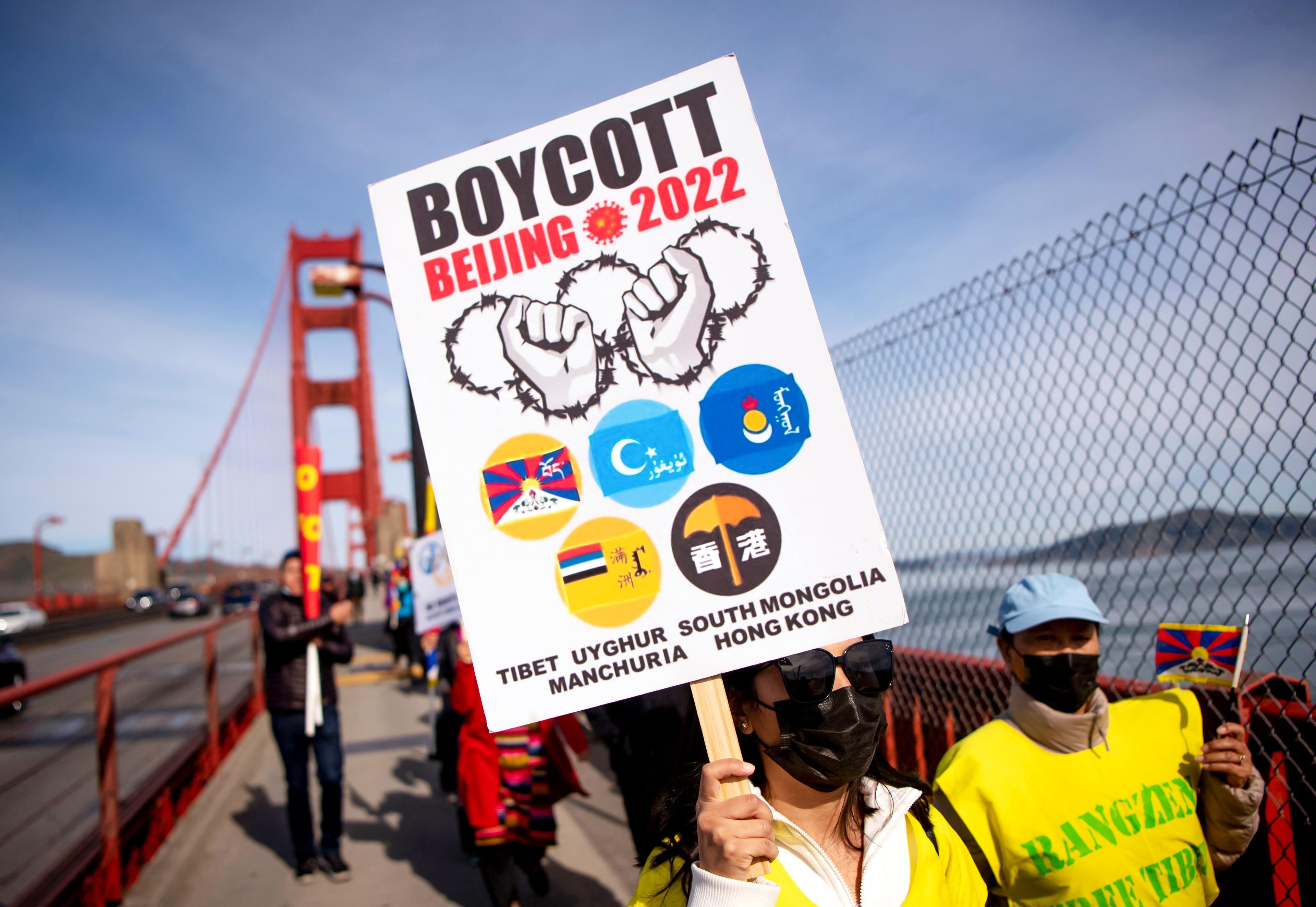
Sarah McLaughlin, a senior scholar at the Foundation for Individual Rights and Expression, a nonprofit organization for freedom in education, said that even though GWU dropped its investigation, it still had the power to look through security tapes to identify the students critical of China.
“Just how scary it is for students this idea that, in the United States, on a campus where their speech rights should be protected, they might have to ask themselves, ‘Am I really free?’” she told The Epoch Times.
CSSAs are known for acting as on-campus proxies for the CCP.
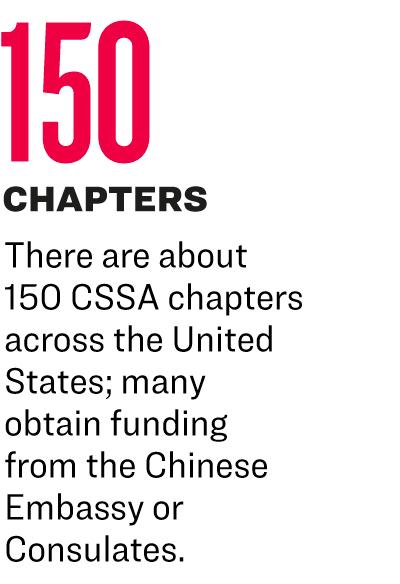
Ms. McLaughlin said the close alignment between Chinese consulates and CSSA chapters raises a significant concern.
She said Chinese international students must think, “I’ve crossed countries and oceans to get here, but how far am I really from the Chinese government and from people who might be watching very closely what I’m doing?”
Ms. McLaughlin said censorship affects everyone.

“I tell people that they should understand that when one person can’t speak, that affects them, too,” she said. “Speech isn’t just about what someone can say; it’s also about what someone can hear.
“Because what the Chinese government does, what the country of China does, is a really big part of the world that we all live in.”
Persecution Exported to the US
In another example on a campus in Nebraska, a Chinese doctoral student was left wondering whether he was truly free.At an on-campus festival in August 2019, a group of Chinese students covered Wang Jianghao’s booth with a giant, 12-foot-wide Chinese national flag.
Mr. Wang, a computer science major at the University of Nebraska–Lincoln, was there to introduce his student club to Falun Gong, a spiritual meditation practice based on the principles of truthfulness, compassion, and forbearance. The CCP has persecuted practitioners of the spiritual discipline since 1999.
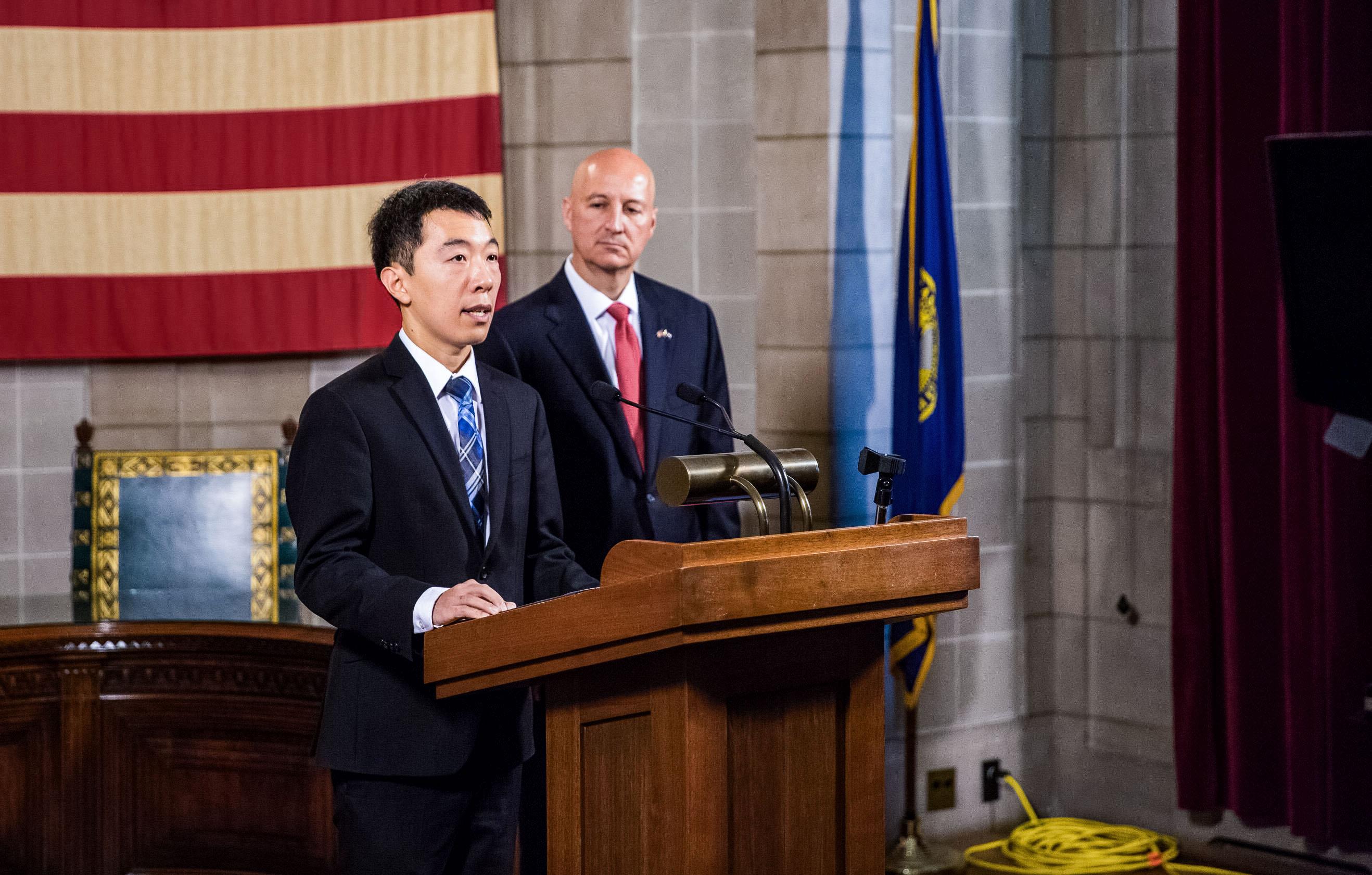
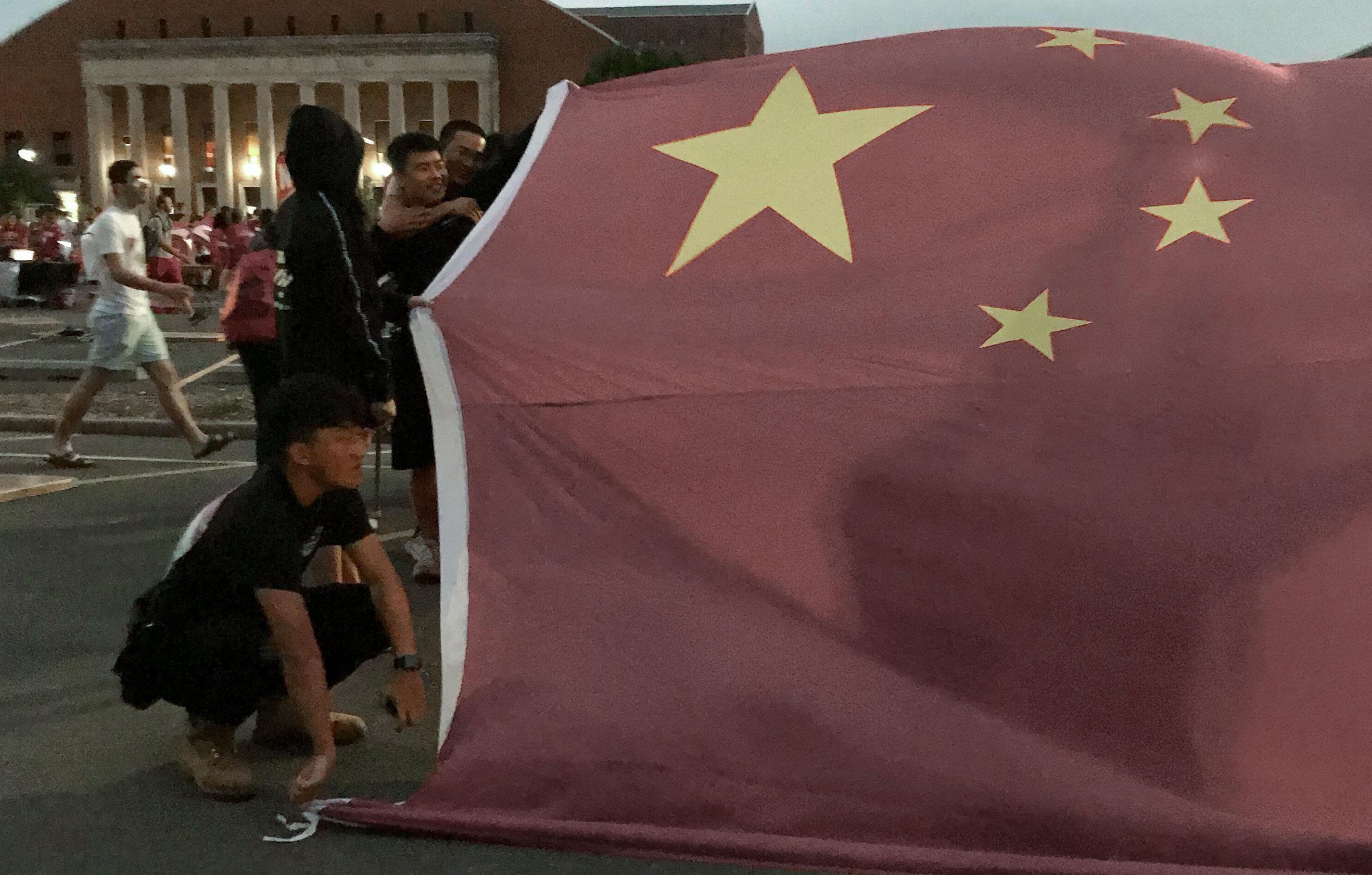
The red flag “carried a threat in a direct dialogue fashion,” he told The Epoch Times. “The message I received was, ‘Even though you are in America, a land of freedom and peace, we can still reach you.’”

He said it felt like the message came from the CCP itself.
“'You cannot escape its claws.’ It was that kind of a message,” Mr. Wang said.
He recalled realizing that he wasn’t completely safe in the United States.
Mr. Wang said he knew he was the target of an organized intimidation and harassment effort because a Chinese student had warned him about what was going to happen half an hour earlier. Acquiring a Chinese national flag of that size in or outside of China usually takes political backing.
He recalled that the group with the red flag took photos and videos of him and his friends with professional-quality cameras. He wondered if those pictures and footage ended up in a nearby Chinese consulate.
Before the Chinese group showed up, Mr. Wang and his friends had been demonstrating the Falun Gong exercises and passing out flyers about the practice to passersby.
They had been focusing on the practice itself, rather than the CCP’s ongoing persecution of it in China, which felt so far removed from the Midwestern city. Compared to other public universities on the East and West coasts, the University of Nebraska–Lincoln isn’t a top destination for international students from China.
However, the giant red flag thrust the persecution into the conversation.
In 1999, the Chinese regime began a brutal campaign of suppression against Falun Gong, aiming to “eliminate” it, after a state estimate found that at least 70 million people had taken up the meditation practice in mainland China. Since then, several million practitioners have been detained and hundreds of thousands tortured, with about 5,000 documented deaths as a direct result of the persecution, according to the nonprofit Falun Dafa Information Center.

Mr. Wang said that while people have a right to speak against Falun Gong and express their views by creating a club or having their own booth, what happened at the festival was harassment to silence others with opposing viewpoints—a classic CCP tactic.
The CCP’s influence on campuses, he said, is like “pollution” to American communities.
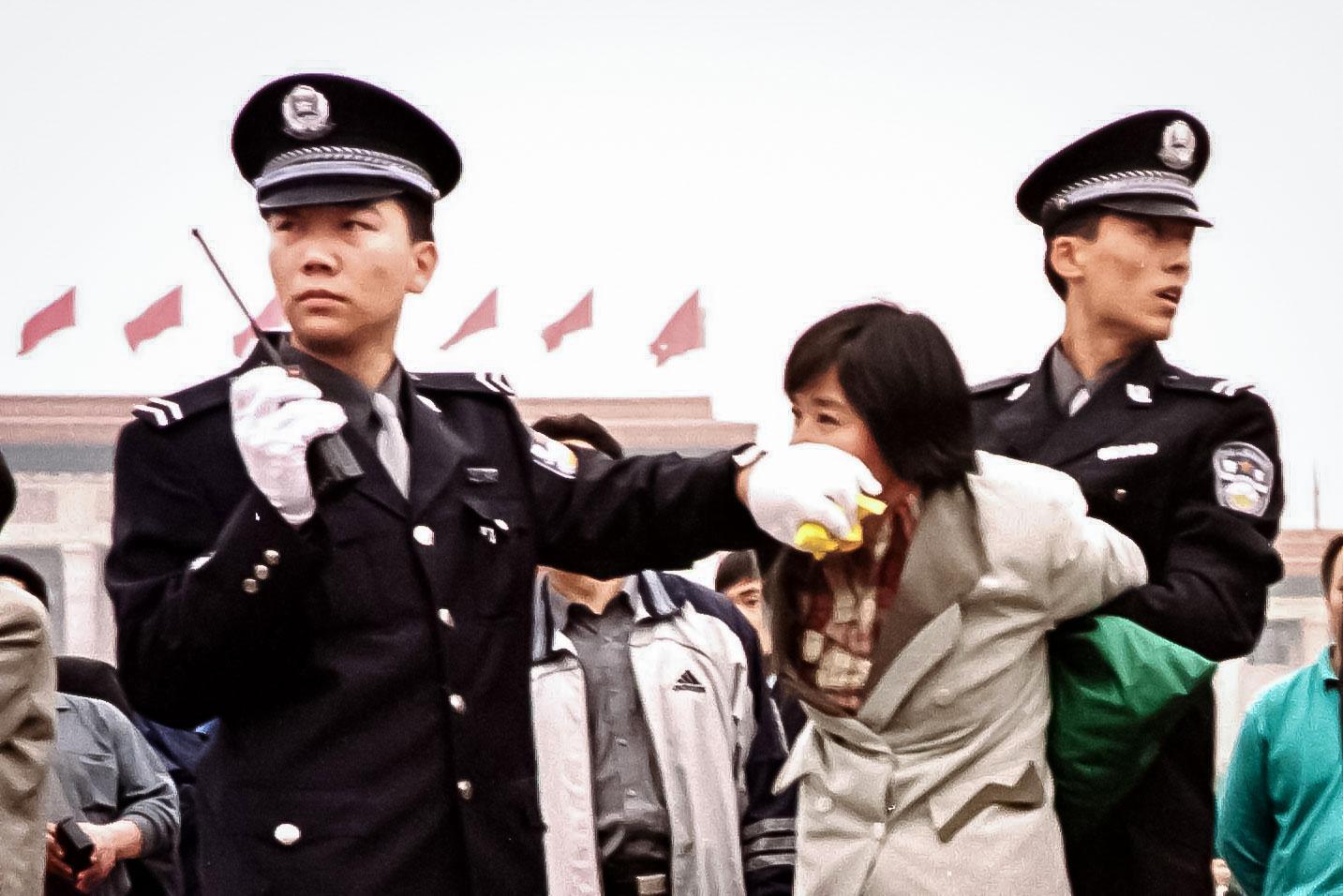
“I was pretty upset to see it portray practitioners and the practice as something strange, violent, and dangerous because I know that that is definitely propaganda from the CCP,” Ms. Li, who has been practicing Falun Gong with her mother since childhood, told The Epoch Times.
“I think it perpetuates CCP propaganda in a way that shouldn’t occur on our campus, especially as a school that prizes intellectual freedom and in a country that values religious freedom.”
According to Ms. Li, her instructor was sympathetic to her concerns, but said that the textbook was for language learning only and kept using it for the class.
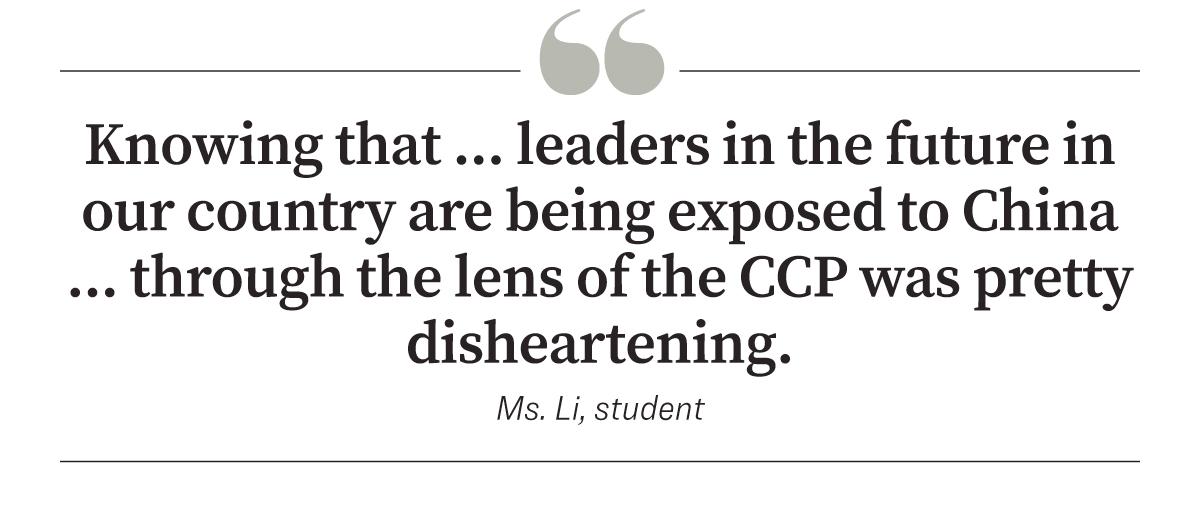
Funding With Strings Attached
Critics say U.S. universities should be more proactive and less susceptible to CCP influence through funding.“When foreign governments give money to our universities, they don’t do it out of the goodness of their hearts; they want something in return,“ Rep. Michelle Steel (R-Calif.) said in December 2023 during a floor vote. ”Whether it’s terror-friendly states like Qatar and Iran, or brutal human rights abusers like the CCP, our campuses must not become puppets of countries who hate America.”

One involved a Stanford professor who was also employed by Fudan University, a prominent school in Shanghai, according to the DOJ. Stanford admitted no liability and promised to work with the National Science Foundation on the “best practices in the areas of gifts funding research projects” and “current and pending support disclosures,” according to the DOJ statement.
Ms. McLaughlin said self-censorship, which is “notoriously difficult to track,” is a significant risk associated with Chinese funding.
Despite the CCP’s seemingly iron grip on its populace, Mr. Zhang is hopeful. He said his confidence comes from being able to see through the CCP.
“Their action, from my perspective, shows either fear or anger—and anger is also linked to fear,” he said.
The CCP goes after dissidents because “a lot of activists are posing a real kind of threat to their power, to their control,” according to Mr. Zhang.
“It’s a game of chicken,” he said. “Whoever gets so afraid, gets fearful enough to back out, that person loses.
“Because what they are—doing [what] they’ve always been doing—they’re not changing. If I change, I’m just letting them win. So I'll continue doing what I’m doing, and maybe someday change will happen.”
